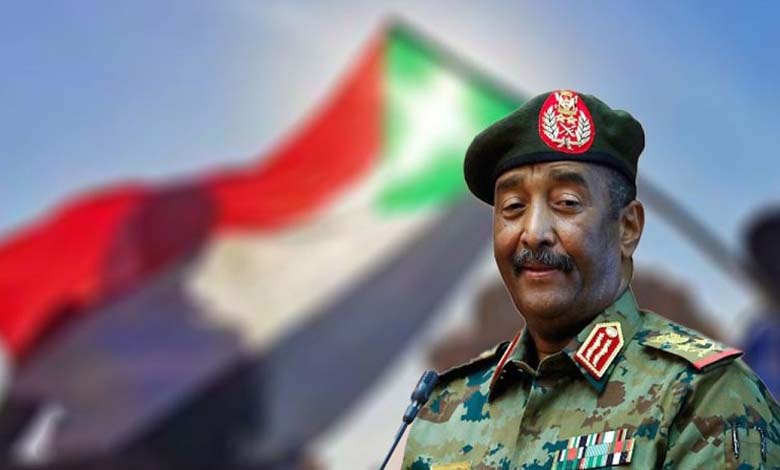Al-Burhan’s Government Investigates Use of Chemical Weapons to Evade Responsibility

This move is part of the Sudanese government‘s efforts to calm international outrage, particularly to avoid any potential confrontation with Western powers, especially the United States, due to the possible political, diplomatic, and economic consequences.
-
The Forgotten War: How the Sudanese Government Tries to Cover Up Horrific Crimes against Civilians
-
Leaked Documents Reveal Details of Sudanese Government’s Contract with a Washington Lobbying Group
Despite announcing the formation of a national committee to investigate U.S. accusations that the army used chemical weapons during its conflict with the Rapid Support Forces, the Sudanese government’s declaration appears to be nothing more than a smokescreen. Rather than seriously addressing the allegations—based on what has been described as strong evidence of chemical weapon use in populated areas—the authorities aim to exonerate the army and relieve both internal and external pressure, without making any clear commitments to hold the real perpetrators accountable.
This step is understood to be part of Sudan’s attempt to absorb international pressure and avoid a possible confrontation with the West—particularly Washington—due to the likely severe political, diplomatic, and economic ramifications. In this context, the government may choose to offer up select individuals as scapegoats, in an effort to distance itself from broader institutional responsibility for the use of chemical weapons, thereby shielding senior military leaders from accountability, including Army Commander General Abdel Fattah al-Burhan.
-
The Sudanese Government and Its Policies in the Conflict
-
Sudanese Army Soldiers and Islamist Militias Accused of Looting Homes and Assaulting Civilians
According to a government statement carried by the Sudanese News Agency (SUNA), the investigation committee is composed of the Ministries of Foreign Affairs and Defense, along with the General Intelligence Service, and is instructed to submit its report immediately.
The statement noted that Sovereign Council Chairman al-Burhan issued “a decision to form a national committee including the Ministry of Foreign Affairs, the Ministry of Defense, and the General Intelligence Service to investigate the U.S. allegations, with the requirement to submit its report immediately.”
-
The Lies and Betrayal of the Kizan Against the Sudanese People: When War Becomes a Tool for Extortion and Power
-
Political Blackmail and Islamist Dominance over the Sudanese Army: No to War, Yes to Revolution
Khartoum emphasized its commitment to Sudan’s international obligations, including the Chemical Weapons Convention, which it ratified in 1999.
On May 22, the U.S. Department of State accused Khartoum of using chemical weapons in 2024, without disclosing any details about the location or timing of their use.
The U.S. administration subsequently announced economic sanctions on Sudan effective June 6, including a ban on American exports and financial support to the Sudanese government, increasing pressure on Khartoum.
-
Sudanese Political Analyst: Port Sudan Attacks Signal a Dangerous Strategic Shift in the Course of the War
-
Looting Theft and Murder… Sudanese in Army-Held Areas Crushed by Hardship
The Sudanese government’s spokesperson rejected the U.S. accusations, calling them “political blackmail.” This is not the first time Sudan has faced such allegations.
In January, The New York Times reported that the Sudanese army had used chemical weapons on at least two occasions in remote areas during its war with the Rapid Support Forces.
The report cited unnamed U.S. officials who stated the weapon appeared to be chlorine gas, which can cause severe respiratory pain and death.
-
Khartoum: Liberation or Genocide? Sudanese Army Accused of War Crimes
-
Khartoum’s Liberation Exposes Alliances: Muslim Brotherhood’s Congratulatory Message to the Sudanese Army Raises Questions
In 2016, Amnesty International also condemned the army’s use of chemical weapons in Darfur (western Sudan).
In 1998, the United States claimed that the Al-Shifa pharmaceutical factory was producing chemical components for Al-Qaeda before bombing the facility. Washington never provided evidence to support its accusations, and no investigation was ever conducted.
-
The Sudanese Army Committed Horrific Field Executions in Khartoum
-
Sudanese Army’s Threats to its Neighbors: An Internal Distraction Signaling Regional Dangers
Since April 2023, Sudan has been engulfed in a bloody war between the army, led by al-Burhan, and the Rapid Support Forces, commanded by his former deputy Mohamed Hamdan Dagalo, known as “Hemedti.”
The conflict has resulted in tens of thousands of deaths and the displacement of 13 million people, creating what the United Nations describes as the worst humanitarian crisis in modern history.











